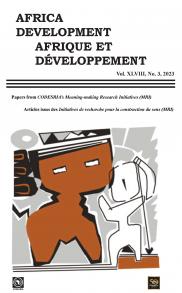Article(ePUB, HTML) 23p.
This article sets out to examine the origin and development of Eswatini irredentism in southern Africa as a neglected theme in African scholarship. Eswatini irredentist disputes, albeit unresolved, have been a subject of mere peripheral allusion in southern African scholarship. The global importance of irredentism as a phenomenon in international relations since the end of the Cold War makes this study imperative. How the smallest and landlocked state on the Southern African mainland can audaciously and persistently make territorial claims against its giant South African neighbour is intriguing, paradoxical and worth investigating. The study methodology involved the use of archival documentation, newspaper articles, government gazettes, indepth interviews and focus group discussions (FGD). This study revealed that Eswatini irredentism is ethnic nationalism par excellence and its roots were nurtured by the imperial order and South Africa before Eswatini’s independence. After independence in 1968, Eswatini irredentism blossomed on historical and ethnic foundations, and was tolerated and fanned by South Africa as a strategy of surreptitiously establishing an Eswatini Bantustan for the resettlement of ethnic Eswatini people and other blacks. The post-apartheid South African governments did a volte-face and rejected persistent Eswatini irredentist claims in toto nourished by the Sobhuza Testament.








